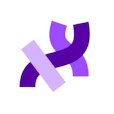open call: processing foundation fellowship program
The Processing Foundation Fellowship program supports artists, designers, activists, educators, engineers, researchers, coders, and collectives — and many combinations of these — in projects that conceive new directions for our softwares, our community, and open source software for artists. Fellowships are an essential element of our foundation’s work in developing tools of community power, connection, stewardship and in nurturing the aims/needs of the people and communities who use our software.
Fellowships are self-initiated projects proposed by members of our community, which we support with mentorship, infrastructural, technical, and practical resources as well as community connections. Fellowship projects can range from development of the existing Processing software projects and related Processing projects (Processing, p5.js, Processing.py, Processing for Android, ml5.js), to creative and exploratory research for new iterations. We are interested in supporting work by fellows that connect groups — be they students and educators, creators, artists, activists and organizers.
We are open to applicants from all backgrounds and skill levels, and support proposals that center investigations, experiments, and learning. We are attentive to proposals that demonstrate enthusiasm and the evolution of a fellow’s practice rather than their pre-existing technical skills.
For 2023, we will support five (5) (art/creative/technology) Fellows and three (3) Teaching Fellows with stipends, mentorship, and other public-facing opportunities. The number of Fellows this year has been expanded, thanks to the generous support and collaboration of SOSO Limited. We are additionally grateful for the support of Bocoup and our other outside mentors. And we continue to collaborate with the College of Education & Human Development at Georgia State University to sustain the work of past Teaching Fellowships. To learn more about the fellowship priority areas, stipends and guidelines, read on!
Fellowship Priority Areas for 2023
Fellowship projects can range from development of the existing Processing software projects and related Processing projects (Processing, p5.js, Processing.py, Processing for Android, ml5.js).
This year we aim to support fellowships that respond to and meet the needs of the priority areas below. Applicants are asked to address at least one of the below, describing how their project responds to the concerns of the topic.
Accessibility
- Foregrounds accessibility on the internet as core for building online communities.
- How can we expand accessibility of existing tools, whether assistive technology on the web, integrations with screen readers, or assistive features in p5.js?
- What kinds of accessible, liberatory design tools can we use? For example, increasing accessibility on the p5.js editor?
- How can we translate accessibility guidelines across disciplines, for example, from design patterns to art made using p5.js?
AI Ethics and Open Source
- Advocates for ethical approaches to new machine-learning and AI tools in the form of creative, artistic, and/or critical projects.
- How do we forefront accessibility, diversity, equity, and belonging in the process of machine learning in critical ways?
Ecology & The Environment
- Focuses on the ways design and technology can steward the environment, ecology and sustainability, thinking holistically about tech and the conditions it creates.
- How can we center the environment, materiality, and the human labor necessary in producing technology, in creating designed experiences using technology?
Internationalization
- Supports translations, educational materials, and documentation in different languages.
- What are new ways to think about working across languages, borders, and cultural contexts?
- How can we center and support the creativity of BIPOC across borders?
Continuing Support
- Maintains and sustains projects that have already been initiated by past fellows (which you can learn about here and here) and/or members of the open-source community.
- How can we continue the work of previous projects, communities, environments, and knowledge systems?
See Fellowship Guidelines below before applying.
The application period opens Wednesday, March 8, 2023 and closes Monday, May 1, 2023. Selected fellows will be notified no later than the last week of May 2022. Late applications will not be accepted. Fellows will be selected by the Processing Foundation’s team and Board of Directors.
